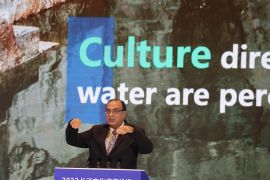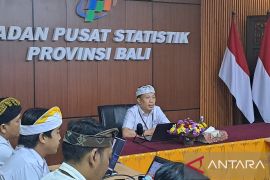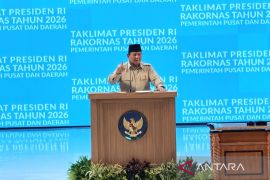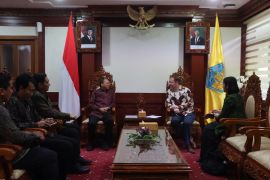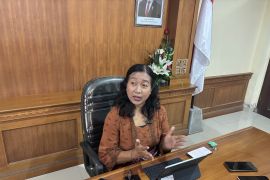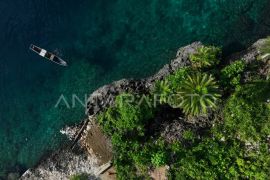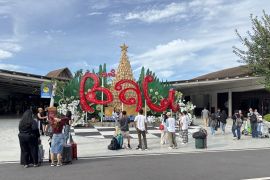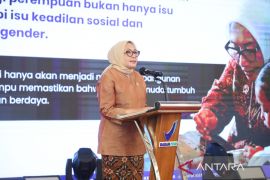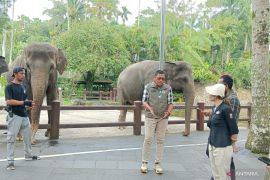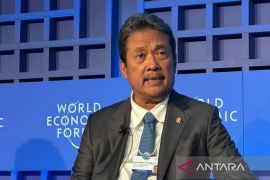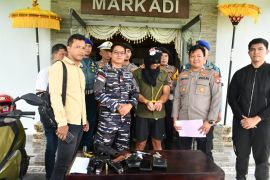The World Water Forum is held every three years to discuss crucial issues related to water, such as water conservation, clean water and sanitation, food and energy security, and mitigation of natural disasters.
This year, Indonesia is hosting the 10th World Water Forum, held in Bali on May 18–25, with the theme "Water for Shared Prosperity".
Apart from that, six sub-themes discussed in the forum are: water security and welfare; water for humans and nature; disaster risk reduction and management; governance, cooperation, and hydro-diplomacy; sustainable water financing; as well as knowledge and innovation.
According to UNICEF, the theme carried by Indonesia at the 2024 World Water Forum is in line with its goals and focuses, including the focus on children's needs.
The theme aligns with UNICEF's goal to ensure that all children have access to basic needs, such as clean water.
Apart from that, the theme promoted by Indonesia is also in accordance with the theme of this year's World Water Day, namely "Water for Peace," which encourages countries in the world to work together in the water sector to create a positive ripple effect—to foster harmony, generate prosperity, and build resilience to shared challenges.
For this reason, it is not surprising that the Indonesian government continues to advance hydro-diplomacy efforts by holding this year's World Water Forum.
Hydro-diplomacy is a diplomatic approach that focuses on water-related issues by prioritizing persuasive dialogue with solutions, including responding to water resource management problems, ensuring equitable distribution of water, and mitigating water-related disasters.
Hydro-diplomacy also focuses on cross-border cooperation and financing that provide mutual benefits related to the use of water.
So far, in carrying out hydro-diplomacy efforts, including through the forum, Indonesia has fostered several concrete collaborations, including encouraging countries to share and adopt best practices in water resource management and mitigating water-related disasters, as well as developing capacity in terms of sustainable and inclusive water resource management.
Moreover, Indonesia has encouraged investment and new technology in efficient and sustainable water management, as well as strengthened cooperation between countries in achieving the Sustainable Development Goals (SDGs), especially target 6 related to water and sanitation.
The 10th World Water Forum can be a platform for countries to learn how Indonesia can meet the 2030 SDGs' targets, according to the Ministry of Foreign Affairs.
In fact, in 2023, Indonesia's SDGs' target fulfillment exceeded 60 percent, while global SDGs' target fulfillment in the same year only reached 12 percent.
Hence, it is important for several countries, especially fellow developing nations, to study how Indonesia can achieve the SDGs' targets amid the various crises it is facing and then establish close and unconditional cooperation, so that all countries can get back on track towards achieving the SDGs' targets.
Furthermore, the goal of hydro-diplomacy is to make water a universal element that unites and promotes peace.
Regarding this goal, Indonesia has been striving to facilitate inter-state and inter-governmental dialogue by sharing knowledge, technology, and experience related to the governance of water resources.
Indonesia's hydro-diplomacy efforts were reflected when the Indonesian Government led the political process of drafting a ministerial-level declaration proposed for the 10th World Water Forum, which has been agreed upon and will be adopted at the international forum on Tuesday (May 21).
In the process of preparing the text of the declaration, there were some fundamental differences in viewing water management between countries that control upstream and downstream rivers. It is related to the management of rivers that cross several countries.
Despite these differences in views, the declaration was successfully refined following three meetings between countries held at the UNESCO headquarters in Paris, France, some time ago.
Indonesia chaired the three meetings that were attended by more than 100 members of UNESCO and other international organizations. It carried out consultations with several countries and organizations to overcome differences and reach consensus regarding the content of the declaration.
The declaration text also promotes peace, as it contains a commitment to reject the weaponization of water for war.
According to Director General of Multilateral Cooperation at the Foreign Affairs Ministry, Tri Tharyat, although the commitment to reject water exploitation for war is only mentioned in one paragraph in the entire text of the declaration, Indonesia needs quite a bit of time to ensure that the commitment part can be accepted by all countries.
Indonesia had approached bilaterally some countries that have concerns about this problem in order to reach a consensus on the commitment.
Realizing such a commitment has an important impact on preventing water from being used as a "tool of war," one of which is encouraging all countries involved in conflict to avoid weaponizing water for war purposes.
The ministerial-level declaration also includes four follow-up proposals following the 10th World Water Forum in Bali, namely the establishment of a Center of Excellence on Water and Climate Security, the establishment of World Lakes Day, mainstreaming water management issues for developing countries on the small islands, and the formation of the Compendium of Concrete Deliverables and Actions.
Related to hydro-diplomacy's focus on financing that provides mutual benefits related to water use, the Indonesian government is trying to encourage the formation of the Global Water Fund to respond to budget imbalances and accelerate the achievement of Sustainable Development Goals (SDGs) Goal 6, namely fulfilling access to clean water and sanitation for all.
Currently, 2.2 billion people still lack access to safely managed water services, including 1.5 billion with “basic services'', 292 million with “limited” water, 296 million who used unimproved sources, and 115 million who still collected drinking water directly from rivers, lakes, and other surface water sources, according to UNICEF data.
Hence, the formation of the Global Water Fund is crucial as a concrete measure to overcome world water problems since it is projected to be able to meet the needs for water infrastructure, mitigate water-related crises or disasters, facilitate adaptation to climate change, and monitor mechanisms.
Indonesia's hydro-diplomacy efforts to encourage the formation of a global fund are indeed necessary to support the interests of developing countries, including Pacific island countries, especially in terms of developing access to clean water for human needs or water development.
Fiji President Wiliame Katonivere, in a special interview with ANTARA, admitted that Fiji has not been able to carry out its own water development due to the limited capacity of the Pacific island nation, so a global funding system is needed.
"We cannot develop it because we are limited, but with the global (water) fund where there is a 'pool' and we have the expertise, we have our people there who have experience in the field, and we would be able to address it (the water issue), not only in Fiji but also for the other Pacific island countries," Katonivere pointed out.
However, Indonesia's efforts to encourage the establishment of the Global Water Fund are certainly not a short process but rather require more time and support from many countries, especially donor nations.
Currently, at the 10th World Water Forum, the idea of having a global water fund is still in the discussion stage to propose its establishment, which involves several parties, not only national governments but also international organizations, one of which is the World Bank.
Ultimately, Indonesia is committed to continuing to play an active role in finding solutions to water problems at regional and global levels.
Indonesia also hopes that through its hydro-diplomacy efforts, it can further strengthen collaboration between countries and advance the global water agenda for shared prosperity.
However, hydro-diplomacy is not only Indonesia's own task but also a diplomatic effort that needs to be carried out by all countries in the world in order to realize the idea of "Water for Shared Prosperity."
Related news: Jokowi conveys Indonesia's four initiatives at World Water Forum
Related news: Subak in Bali signifies local wisdom in caring for water: Jokowi
Editor: Anton Santoso
Copyright © ANTARA 2024

